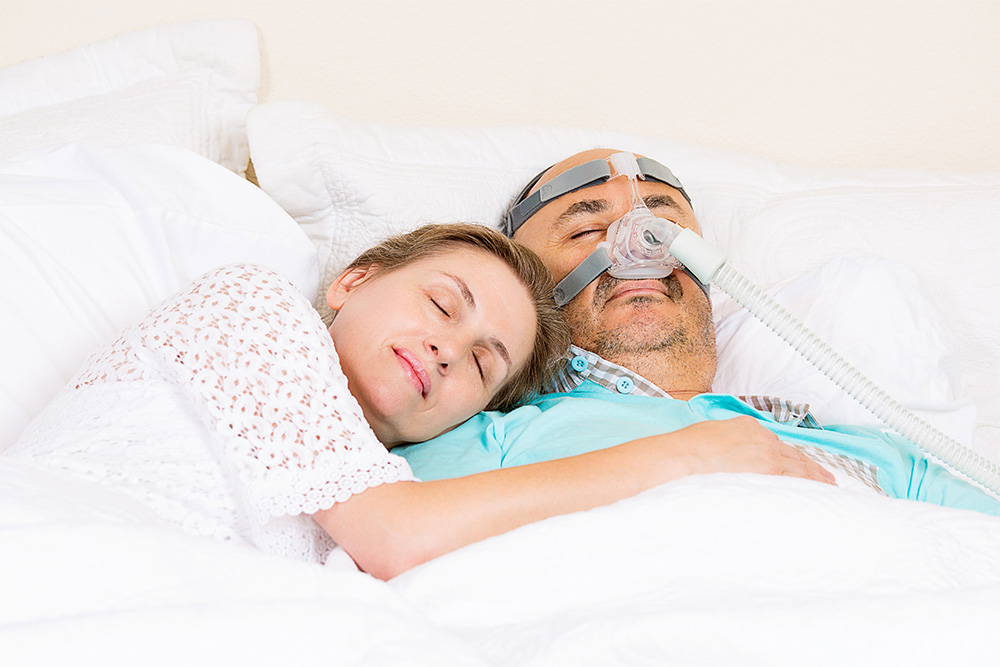A new study reveals that CPAP may alleviate depression in patients with obstructive sleep apnea.
Obstructive sleep apnea can have a number of serious implications, but a new study has revealed that continuous positive airway pressure (CPAP) treatment may actually help to reduce some of the symptoms of depression in patients who also have obstructive sleep apnea. Read on to find out more about the study and its findings…
What did the study look at?
The study was conducted by researchers at the University of New South Wales in Sydney, where over 2000 patients with moderate to severe obstructive sleep apnea were randomly assigned to either CPAP treatment or their usual care. The patients were then assessed for signs of depression and anxiety at follow-up appointments over a period of around three years.
What did the study find?
According to the researchers, the CPAP treatment was associated with reduced symptoms of depression when compared with the usual care. They found that the treatment effect tended to be greater among those who had had pre-existing depression symptoms. Interestingly, the study showed no effect of CPAP treatment on the patients’ anxiety. The study suggests that CPAP treatment may have some broader benefits and can be very helpful for patients who suffer from both depression and obstructive sleep apnea.
What is CPAP treatment?
Continuous positive airway pressure, or CPAP, involves the use of a special machine that is designed to deliver air pressure through a piece that is fitted into the nose. The device is placed over the nose and mouth during sleep, allowing one to breath a continuous and constant flow of air that keeps the upper airway passages open.
CPAP works by reducing the number of respiratory disturbances that occur while one is sleeping, which in turn helps to alleviate some of the symptoms of sleep apnea, such as daytime sleepiness and mood changes.
CPAP treatment is very popular, but one of its major drawbacks is the fact that it requires patient compliance. Some patients find the device to be uncomfortable or inconvenient. If you have any questions or concerns about CPAP treatment, we encourage you to come in and see us for a consultation so that we can provide you with all the information you need and determine whether it’s the right treatment for your particular needs.
How will I know if I have obstructive sleep apnea?
One of the most common symptoms of obstructive sleep apnea is loud snoring, but snoring alone does not mean that you are suffering from the condition. The best way to differentiate snoring from sleep apnea, or to diagnose the severity of sleep apnea, is to undergo an overnight sleep study. An overnight sleep study is performed in order to properly evaluate what your body does at night. The study may include a number of tests, including electroencephalogram; electrooculogram; electromyogram; electrocardiogram; right and left leg EMG; nasal/oral airflow; thoracic respiratory effort; abdominal respiratory effort; snoring; SaO2; heart rate; and video monitoring. Respiratory Disturbance Index (RDI) is an important measure of the severity of the sleep disorder and represents how many times per hour breathing stops or becomes very shallow. This index is important because it is often associated with disruption of sleep and dangerous drops in blood oxygen levels. Most physicians agree that an RDI of 5 or below is normal while an RDI over 40 may indicate severe disease.
If you suspect that you have obstructive sleep apnea and would like to arrange a consultation with us, please don’t hesitate to get in touch. Our team includes experts in the field and is dedicated to providing you with top quality care. To find out more about the team at Elite Dental of Staten Island, please take a look here.
